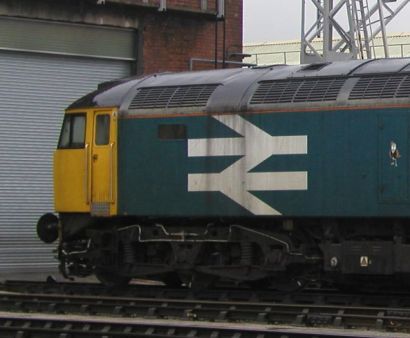THE LAST remnant of the British Railways Board has been closed down, 13 years after the power to do so was included in an Act of Parliament. Part of its property has been passed to the Highways Agency.
The Board, which started work on 1 January 1963 and traded as 'British Rail' -- its best known title -- from 1965 until 1997, took over the railways after the previous British Transport Commission had been abolished at the end of 15 years of existence. The BTC itself had been created in 1948 when the railways and some other transport were nationalised, but it always struggled financially and was eventually broken up into a number of separate Boards at the end of 1962, one of which was the new BRB.
Since the BRB ran its last trains in 1997 following privatisation of the industry, it has existed as BR (Residuary) Limited in order to carry out some of the former Board's remaining functions, but now these have been transferred to other bodies as part of the Government's 'war' on quangoes.
These bodies include the Highways Agency, which has become responsible for derelict railway land, such as the courses of former branch lines and the structures on them. Railway land which is out of use but may be needed for operational purposes again in the future will continue to be administered by Network Rail.
Other successors to BRB (Residuary) include London & Continental Railways Ltd, which is now responsible for former Board properties with development potential, or which might be used for future railway projects. Some office buildings are also including in this portfolio, such as the Railway Technical Centre in Derby and the Axis in Birmingham.
Network Rail has gained a small number of properties which should have been transferred during railway privatisation or which should be maintained by the owner of the operational railway. It is also now responsible for the Old Dalby test track and various war and accident memorials.
The Rail Safety and Standards Board is now the owner of the intellectual property rights of drawings and maintenance documents and reports relating to rolling stock built before 1996.
Finally, the Department for Transport will deal directly with claims connected with ill-health from former employees of the Board.
The British Railways Board was created by the Transport Act of 1962, and so another Act was needed to abolish it. The necessary powers were included in the 2000 Transport Act, but have only been activated now.


